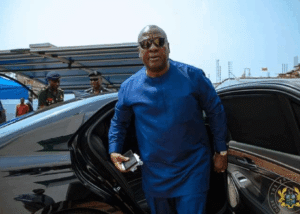In late June 2025, Togo witnessed a troubling resurgence of violence and state repression. Peaceful demonstrations, sparked by widespread outrage over new constitutional changes designed to extend President Faure Gnassingbé’s grip on power, were met with heavy-handed tactics by security forces. Across Lome, police and military deployed tear gas and batons, and plainclothes operatives entered homes, violently targeting youth and civil society groups demanding respect for democratic norms.
Notable incidents include:
·June 26–27: Hundreds of demonstrators set up barricades and burned tires before being violently dispersed. Dozens were arrested in districts like Bè.
·June 11: Medical personnel, including Dr. Hounou-Adossi, were detained while tending to injured protesters, raising serious concerns about violations of medical neutrality.
·June 16: The government suspended RFI and France 24 broadcasts for three months, tightening media censorship amid growing tensions.
·June 6: TV5 Monde reporter Flore Monteau was arrested and forced to delete her footage of protests — another example of press freedom under attack.
These actions reflect a coordinated push to silence dissent through arbitrary detentions, media blackouts, suspected civilian auxiliary forces patrolling neighborhoods, and intimidation of anyone who dares to oppose the regime.
Why This Should Matter Deeply to Ghana
Ghana’s reputation in West Africa rests on its strong democratic track record. As Togo drifts into deeper authoritarianism, the threat is not isolated; it is regional. Silencing protests, jailing youth, and muzzling the press weakens ECOWAS standards and emboldens similar crackdowns elsewhere.
Shared Borders Mean Shared Consequences
Ghana and Togo share a long, porous border running through towns and villages with deep family ties on both sides. When repression intensifies, it often triggers cross-border displacement. Instability in Togo means a likely influx of refugees into Ghana’s Volta Region and beyond, putting pressure on local resources and creating humanitarian challenges we must be ready to handle.
Regional Stability Is Ghana’s Stability
West Africa’s peace is fragile. We have already seen recent coups and democratic backsliding in the region. If Togo’s leaders continue to undermine democratic norms unchecked, it will weaken the ECOWAS framework that Ghana relies on to safeguard its security and prosperity.
Economic Spillovers
Togo’s main port in Lomé is a critical trade hub for landlocked countries like Burkina Faso and Niger, and it also serves traders from Ghana’s eastern corridor. Protests, roadblocks, and crackdowns disrupt cross-border commerce, threaten jobs, and hit small businesses on both sides. Instability raises the cost of doing business, fuels smuggling, and weakens legitimate trade.
Undermining the Rule of Law Sets a Bad Example
When repressive governments face no consequences, it sends a dangerous signal to other leaders in the region who may be tempted to dismantle democratic safeguards for personal gain. Ghana’s silence today could embolden anti-democratic forces tomorrow, even within our borders.
We Share a Common People
Many Ghanaian families have Togolese roots, and vice versa. For example, Ewe communities live on both sides of the border. When people in Lome are beaten for raising their voices, it strikes at our values of freedom and justice. We cannot claim to stand for human rights if we turn our backs when our brothers and sisters are abused next door.
Our International Reputation Is at Stake
Ghana is often held up as a model of democracy in Africa. Ignoring these abuses risks damaging that standing. Strong, principled diplomacy in moments like this reinforces Ghana’s image as a nation that leads by example, not just for political gain, but because it is the right thing to do.
Preventing Radicalization and Crime
When people lose faith in peaceful change, they become vulnerable to radical movements and criminal networks that exploit frustration and despair. The longer Togo’s crisis drags on, the higher the risk of extremist groups or organized crime exploiting the chaos, which can easily spill into Ghana and the wider sub-region.
In short, what happens in Togo does not stay in Togo. Ghana must see this not as meddling, but as protecting our national interest and upholding the ideals we claim to stand for. Silence is not neutrality; it is consent for abuse to spread.
Diplomatic Strategies Ghana Should Mobilize
Public Condemnation & Regional Leadership
1. The Ministry of Foreign Affairs should issue clear, timely statements condemning the violence, reinforcing Ghana’s commitment to defending democratic freedoms.
2. Bilateral and Multilateral Engagement
Through ECOWAS and the African Union, Ghana should lead diplomatic efforts urging Togo to de-escalate tensions, halt arbitrary arrests, lift media restrictions, and engage in genuine political dialogue. Ghana should push for targeted measures, such as travel bans or asset freezes, against individuals responsible for human rights abuses.
3. Support Independent Oversight
Ghana should advocate for the immediate deployment of neutral human rights observers across Togo and help ensure safe channels for local and foreign journalists to report freely and safely.
4. Humanitarian Preparedness
Contingency plans must be in place to receive Togolese refugees who may flee repression. Ghana must ensure that they are treated with dignity and receive adequate care in line with international standards.
5. Mediation and Conflict Resolution
Ghana can use its track record and trusted position to help facilitate mediation, bringing together opposition leaders, youth representatives, civil society groups, and government officials under ECOWAS auspices.
Looking Ahead
The recent episodes of repression, mass detentions, media suppression, and the cementing of constitutional rule by a single family threaten to deepen a pattern of democratic backsliding in West Africa. Ghana has an opportunity to be a force for stability and principled leadership.
Our government’s diplomatic toolkit is strong. What’s needed now is decisive action: public condemnation, coordinated regional pressure, protection for civil society and the press, and readiness to help those fleeing injustice.
Injustice in one country is a risk to us all. Ghana must honor its legacy by boldly standing for democratic principles in Togo. The world is watching
Injustice in one country is a risk to us all.
Ghana must honor its legacy by boldly standing for democratic principles in Togo. The world is watching.
Why Injustice in Togo Is a Risk to Ghana and the Sub-Region
Ghana cannot afford to see Togo’s repression in isolation. The consequences, if left unchecked, directly threaten our national interests and the region’s fragile peace. Here’s why:
Cross-Border Refugee Flows
Political violence and intimidation in Togo will push families to flee to Ghana’s Volta Region and nearby communities. Sudden refugee movements can strain schools, health facilities, food supplies, and security arrangements.
Transnational Family Ties
Many communities, especially the Ewe people, span both sides of the border. When loved ones face injustice in Togo, anger and fear ripple into Ghana, sometimes sparking local conflicts and mistrust of authorities.
Criminal Networks Exploiting Instability
In repressive environments, criminal groups thrive. Smugglers, traffickers, and arms dealers take advantage of porous borders and desperate people, expanding organized crime networks into Ghanaian territory.
Terrorist and Extremist Recruitment
When young people see peaceful protest violently shut down, some lose faith in democracy altogether. Extremist recruiters, already active in parts of West Africa, seize on this despair to radicalize vulnerable youth.
Economic Disruptions
Togo’s main port and highways are lifelines for regional trade. Instability means roadblocks, closed borders, or extra bribes that raise costs for Ghanaian traders. Legitimate business suffers while black markets grow.
Weakening ECOWAS Standards
If Togo’s leaders get away with crushing dissent, it lowers the bar for democratic governance in the region. Other governments may copy these tactics, undermining the rules Ghana depends on to keep West Africa stable.
Undermining Ghana’s Moral Authority
Ghana is seen as a beacon of democracy in Africa. Staying silent when abuses happen next door risks tarnishing that reputation and limits our ability to lead by example. If repression sparks armed resistance, violence could spill across borders. Ghana’s border towns are vulnerable to stray conflicts, arms flows, and sudden security incidents.
Fueling Long-Term Regional Instability
A single authoritarian state can become a source of repeated crises, coups, proxy conflicts, or organized crime hubs, dragging neighbors into turmoil for years to come.
In short, injustice in Togo is not just a Togolese problem. It is a Ghanaian problem, a West African problem, and a threat to our collective peace and progress.
Kofi Kwateng Amaning Kokuro
P.O. Box 10
Nsuta.
Sekyere Central District,
Ashanti Region






One thought on “Condemning the escalating abuses in Togo: A strategic call for Ghana”
It’s really sad to see what’s happening in Togo. Ghana should not stay silent. We can’t let our neighbors suffer while we watch.